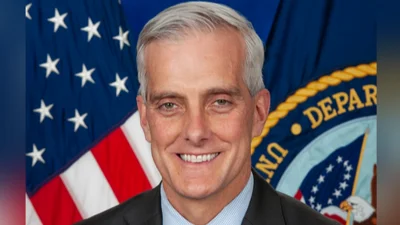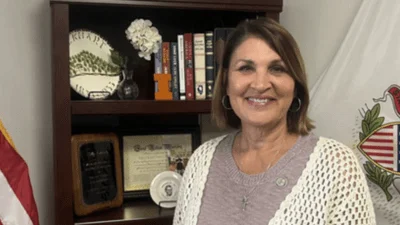Governor Bruce Rauner
Governor Bruce Rauner
Gov. Bruce Rauner shook up his staff on Tuesday, less than a week after the Illinois General Assembly voted to override his vetoes on a budget and tax increase.
Rauner replaced his communications director and deputy chief of staff for policy and also hired a special assistant to his new chief of staff. Two of the new hires hail from the Illinois Policy Institute.
Michael Lucci, the institute's vice president of policy, will serve as Rauner’s deputy chief of staff. Laurel Patrick, who worked for Wisconsin Republican Gov/ Scott Walker and the Franklin Center for Government in Washington, will direct the communications team. Jean Hutton, the institute's director of operations, will become special assistant to Kristina Rasmussen, Rauner’s new chief of staff and the institute's former president and chief operating officer.

Rauner made the announcements a day after naming Rasmussen to replace Rich Goldberg, who joined Rauner's staff in January 2015 and became chief of staff a year later.
“My vision has always been for an Illinois that is prosperous and compassionate, with a state government that serves the people, rather than the other way around," Rauner said in a statement. "That’s Kristina’s vision, too, and that’s why I have appointed her my next Chief of Staff."
Rauner's housecleaning appears to be setting a conservative tone for the rest of his term and his bid for re-election in 2018.
“It's setting a clearer, cleaner path of where he wants to take his administration through the election cycle," Thom Serafin, a Chicago consultant and political analyst said. "In order for the governor to get re-elected, he's got to be very focused and his message has to be certain.”
The changes and refocus comes at a time when many viewed the veto overrides as a defeat for Rauner, who butted heads with House Speaker Michael Madigan (D-Chicago) and Democratic lawmakers on a balanced budget and substantial reforms for two years. The battle cost the state substantial harm to its credit, social and human services, public education system and universities.
Rasmussen sent out a memo in which she announced the hires and identified “four critical areas” on which she would like the office to concentrate: best ideas for “transforming Illinois through better public policy and improved operations;” an effort to share stories of men, women, and children who “deserve a revitalized Illinois;” workplace excellence; and mutual respect coupled with “radical candor.”
“I’m honored to join you as we position Illinois to become the most prosperous, compassionate, and free state in the nation,” Rasmussen said in the memo.






 Alerts Sign-up
Alerts Sign-up